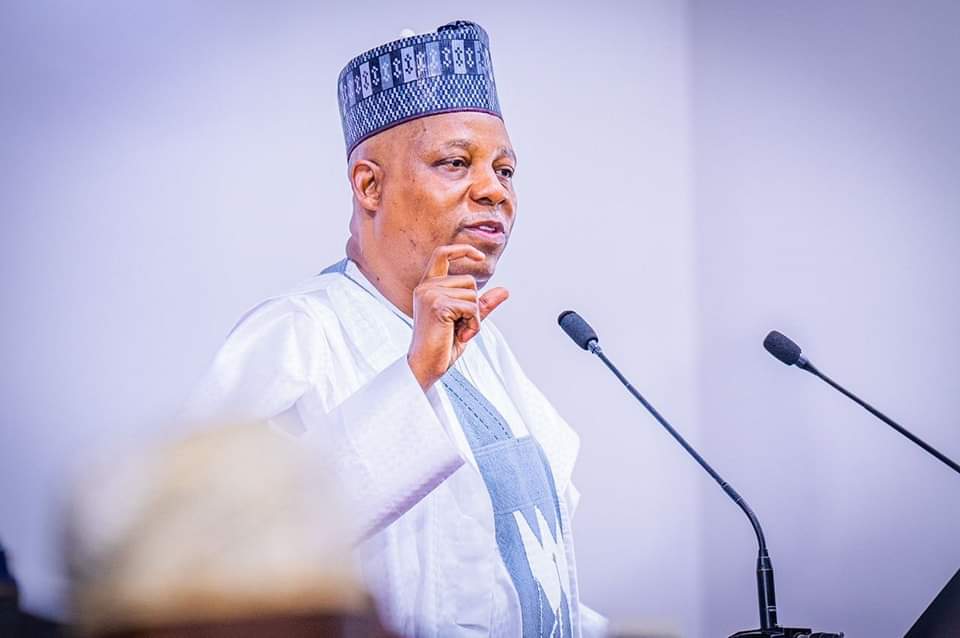What I learned from Vice President Kashim Shettima in Cuba
As our aircraft glided into Havana, the familiar visual of meticulous farmlands, neatly spread like emeralds cut in perfect geometric shapes appeared on both sides of the plane. It is my second foray in the island nation of Cuba which I visited for the first time nearly five years ago. This time I had come […]

Vice President Kashim Shettima
As our aircraft glided into Havana, the familiar visual of meticulous farmlands, neatly spread like emeralds cut in perfect geometric shapes appeared on both sides of the plane. It is my second foray in the island nation of Cuba which I visited for the first time nearly five years ago. This time I had come to attend the G77 and China Summit as part of the Nigerian delegation which is led by the Vice President, Senator Kashim Shettima who represents President Bola Ahmed Tinubu. The summit’s theme; Science, Technology and Innovation was to be deliberated upon by the G77’s now 123 countries and China, a key player in south-south cooperation.
Cuba, which assumed the presidency of the G77 in January is such an auspicious location to host the summit. Much like Nigeria or any other country of the G77, Cuba is rich in nuances. It is a convergence point of so many contradictions, underlined by the stark effects of the infamous economic sanctions on the country. As we were to hear in most of the speeches from leaders of the developing world representing 80 per cent of the globe during the summit, solidarity with the Cuban people in the face of the unjustified blockade is not just necessary, but urgent.
The embargo was originally initiated with the sanctions imposed by the U.S. in 1960 and was compounded by the subsequent total blockade signed by President Kennedy a couple of years later. According to now declassified documents, the embargo was aimed at ‘creating hardship and disenchantment’ among the Cuban population and deny them ‘money and supplies’, ‘provoke hunger, despair’ and ‘the overthrow of the government’. The CIA admitted two decades later in the 1980s that the sanctions have not accomplished any of their objectives. Six decades later, Cuba is still resisting.
- Bayelsa rice farmers lament flood, pest attacks
- Nigeria, Cuba sign MoU on food security, agriculture advancement
However, the G77 summit was as much about Cuba as it was about the other member countries of the G77 who are marginalized and left behind despite so many gains in science and technology that could significantly improve lives in the global south. Leaders of delegations from all these countries spoke to this, highlighting their concerns and aspirations with the group. The Nigerian Vice President did not fail to capture the essence of the summit as he described the gathering as “a testament to the urgency imposed upon us by the rapid pace at which our world continues to evolve in the realms of science and technology. Each one of us here is, in our own peculiar way, invested in partnering to make the world a better place and in building a civilization that caters to our scientific and technological needs.”
Tucked away in a corner of the full capacity Cuban Internatioanl Conference Center in Havana, I listened with a great sense of pride and patriotism to the Vice President as he succinctly and charismatically contextualised the evolution of the rules of the world and how science and technology have not only catalyzed but dominated this evolution. He eloquently surmised Nigeria’s place in the gamut of global innovation, highlighting our globally vibrant and multidisciplinary talent, our tremendous potential and growth in digital technologies as well as our understanding and readiness for global partnerships and collaboration.
The Vice President expressed President Bola Ahmed Tinubu’s recognition of Nigeria’s place as a part of the global community and belief that Nigeria’s progress is intertwined with the progress of others. “We must work together to create a world where all nations, regardless of their past disadvantages, can compete on a level playing field and even be a source of novel ideas and innovative technology.”
My mind raced with so much excitement as he spoke because this speech resonated with me immensely. Firstly, It is an established fact that innovation is a team game and cannot be achieved in isolation. Also, it is evident that through innovation driven and market creating businesses, developing countries can accelerate social and economic progress significantly. Aligning the transformative power of good governance in Nigeria with effective and strategic multilateral collaborations outside Nigeria could bring about an unprecedented growth in science, technology and innovation for not only Nigeria, but it’s partners across the world.
It was no surprise to me when the Vice President-led delegation swung into action on the sidelines of the summit initiating and signing bilateral agreements across the agriculture, science & technology and health sectors. The minister of Agriculture and Food Security, Senator Abubakar Kyari and the Minister of Innovation, Science and Technology Uche G. Nnaji took center stage in negotiating mutual relationships with their Cuban counterparts.
I was delighted to have been a part of this historic mission. Even more so, I felt fortunate to have had profound and engaging conversations with the Vice President who recognizes that innovation is a team sport and that global prosperity is inexplicably tied to it’s democratization.
Lost in a reverie about lessons I have learned and the inspiration to do more as an innovator to enhance Nigeria’s prospects, I overheard the Vice President, a vast reader, asking if anyone in the room knew that the Author Earnest Hemingway lived in a house that’s still standing in Havana called ‘the Finca Vigía‘.
“I’d love to pay a visit there.” he said.
Indeed, my biggest takeaway from Cuba is that the future belongs to those who truly appreciate the nuances in history and are keen to find opportunities in them, instead of obstacles.
